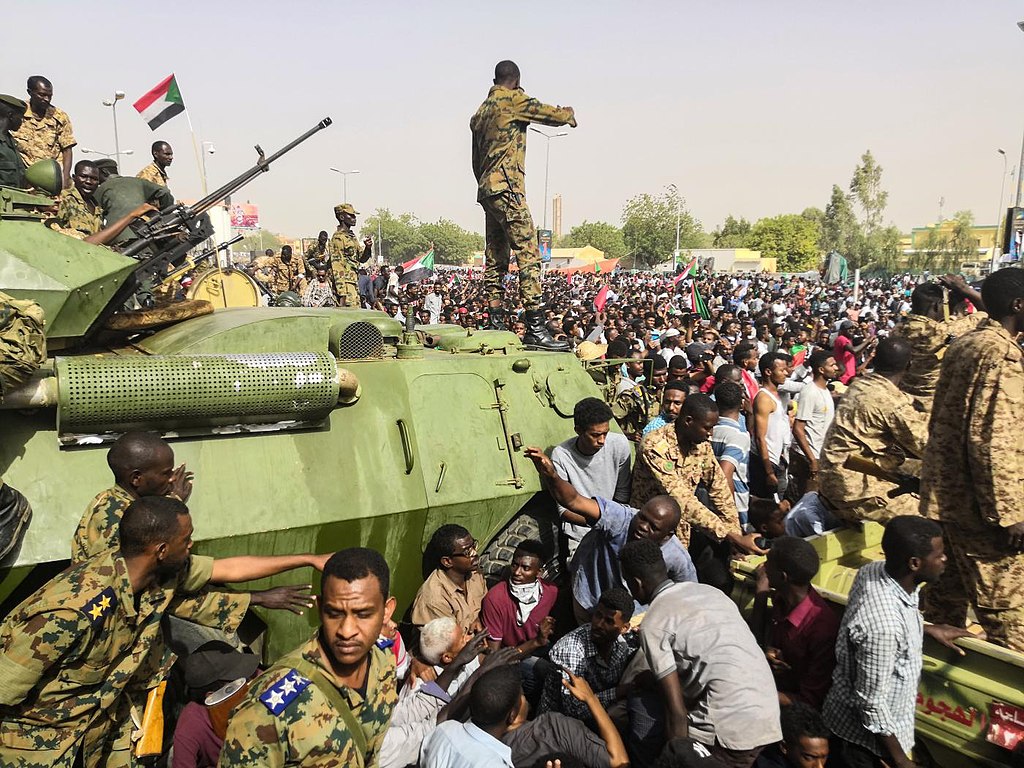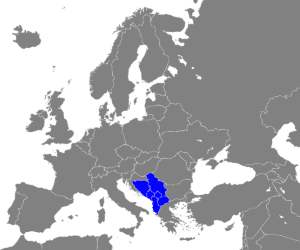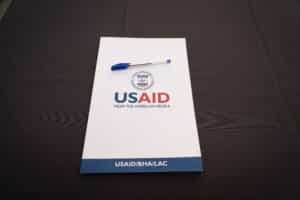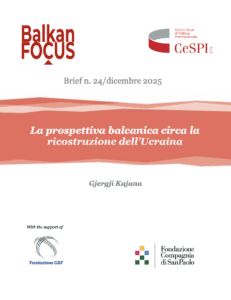Protesters near the army headquarters in the Sudanese capital Khartoum in 2019 (WikiMedia Commons)
Sudan’s ruling sovereign council has said to lift the country’s year-long state of emergency. The country’s army chief Abdel Fattah al-Burhan imposed these measures after a military coup in October 2021. A fragile democratic transition period followed the 2019 removal of Omar al-Bashir until last year’s coup, which sparked large-scale international condemnation.
Small signs of less repression
Sudan’s Transitional Sovereign Council said in a statement that it decided to lift the state of emergency to create the right atmosphere for “a fruitful and meaningful dialogue that achieves stability during the transitional period”. Also, the military leaders said to free imprisoned protesters who were detained under the extraordinary measures. This has come after UN special representative Volker Perthes called for the removal of the state of emergency after two protesters were killed during anti-coup protests on May 29. Military officials also decided to allow Al-Jazeera to resume broadcasting in the country after it was banned in January 2022.
Sudan’s post-2019 democratic trajectory
After massive protests in December 2018 commenced in Sudan, its authoritarian leader Omar al-Bashir was arrested in April 2019. It led into a transitional period under new Prime Minister Abdalla Hamdok who initiated talks with international institutions to restore the country crippling economy. However, after various failed attempts, on October 25 a military coup d’état took over the country’s institutions, leading to the capture of Hamdok.
Since the coup
Since the military coup, Sudan has seen major civil protests. These faced large-scale repression from state security forces, leaving nearly hundred people dead and hundreds more wounded. The military takeover invoked international condemnations and various measures, such as aid cuts by western donors. Sudan is already one of the world’s poorest countries. Its economy is in crisis after years of international isolation and waste of public resources under former dictator al-Bashir. Currently, the UN, African Union and regional bloc IGAD are pushing for the restoration of the democratic trajectory in Sudan. Hopefully, the lift of these extraordinary measures by the Burhan’s military junta is a positive sign in Sudan for the upcoming time.
Sources: Al Jazeera Bloomberg VOA News
Photo: WikiMedia Commons



